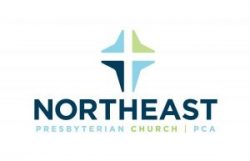Worship is a way of life that takes place not just at 11:00 on Sunday morning, but every other hour of the week (John 4:20-24). Through this “Call to Worship,” we want to share some thoughts about worship, scripture verses, hymns, and songs to teach and encourage you as you seek His face daily and then hopefully together with us on Sunday!
Maria Currey, Assistant Director of Music – Traditional
Hymn Highlight – “Great Is Thy Faithfulness” – Thomas Chisholm
Through the Lord’s mercies we are not consumed, because His compassions fail not. They are new every morning, great is Your faithfulness. “The Lord is my portion,” says my soul, ‘Therefore I hope in Him!”
Lamentations 3:22-24
We don’t need to be rescued from life-threatening danger or see God’s miraculous provision in the direst of financial crises to truly know the faithfulness of the Lord. God remains faithful day in and day out in the largest and smallest of circumstances.
Thomas Chisholm wrote “Great Is Thy Faithfulness” as a testament to God’s faithfulness through his very ordinary life. Born in a log cabin in Franklin, Kentucky, Chisholm became a Christian when he was twenty-seven and entered the ministry when he was thirty-six, though poor health forced him to retire after just one year. During the rest of his life, Chisholm spent many years living in New Jersey and working as a life insurance agent. Still, even with a desk job, he wrote nearly 1,200 poems throughout his life, including several published hymns.
Chisholm explained toward the end of his life, “My income has not been large at any time due to impaired health in the earlier years which has followed me on until now. Although I must not fail to record here the unfailing faithfulness of a covenant-keeping God and that He has given me many wonderful displays of His providing care, for which I am filled with astonishing gratefulness.”
With each new day, God gives us the chance to prove His faithfulness. And throughout history, He’s never once been proven wrong, for His mercies are new every morning, no matter what.
This story behind “Great Is Thy Faithfulness” is an excerpt from the Gaither Homecoming Bible.
Adapted by Maria Currey
Kerri Roberts, Assistant Director of Music – Contemporary
In keeping with our series of study into the origins of our scriptural words for Praise and Worship, today we’re looking at the most commonly used word translated “praise” in the Old Testament. The word is hallal.
Used more than 180 times in scripture, hallal is a primary Hebrew root word for praise. Our word “hallelujah” comes from this base word. It means “to be clear, to praise, to shine, to boast, show, to rave, celebrate, to be clamorously foolish.”
When I look at this definition, honestly, the first picture that comes to my mind is that of a sports fan. Just think about the shiny, boastful raving, even foolish clamor that fans exhibit when their team wins a big game! No one thinks twice about clearly raving over a job well done or celebrating the victory unabashedly! Oh, how much more should we show forth our praise for the greatness and unfailing love of our God who has won the ultimate victory for each one of us through the death and resurrection of Jesus Christ!
The clearest representative in scripture for the use of the word hallal must be Psalm 150. It encompasses not only many reasons that we have to praise, but also many of the means through which we can praise – with words, instruments, and our bodies!
Psalm 150
Praise (hallal) the Lord! Praise (hallal) God in His sanctuary;
Praise (hallal) Him in His mighty heavens.
Praise (hallal) him for his mighty deeds;
praise (hallal) him according to his excellent greatness!
Praise (hallal) him with trumpet sound; praise (hallal) him with lute and harp! Praise (hallal) him with tambourine and dance;
praise (hallal) him with strings and pipe!
Praise him (hallal) with sounding cymbals; praise (hallal) him with loud clashing cymbals!
Let everything that has breath praise (hallal) the Lord!
Praise (hallal) the Lord!
Closely related is the word tehillah, which is derived from the word halal and means “the singing of halals, to sing or to laud; perceived to involve music, especially singing; hymns of the Spirit or praise.”
Psalm 40:3
He put a new song in my mouth, a song of praise (tehillah) to our God. Many will see and fear, and put their trust in the Lord.Psalm 66:2
Sing the glory of his name; give to him glorious praise (tehillah)!Psalm 100:4
Enter his gates with thanksgiving, and his courts with praise (tehillah)!
Give thanks to him; bless his name!


